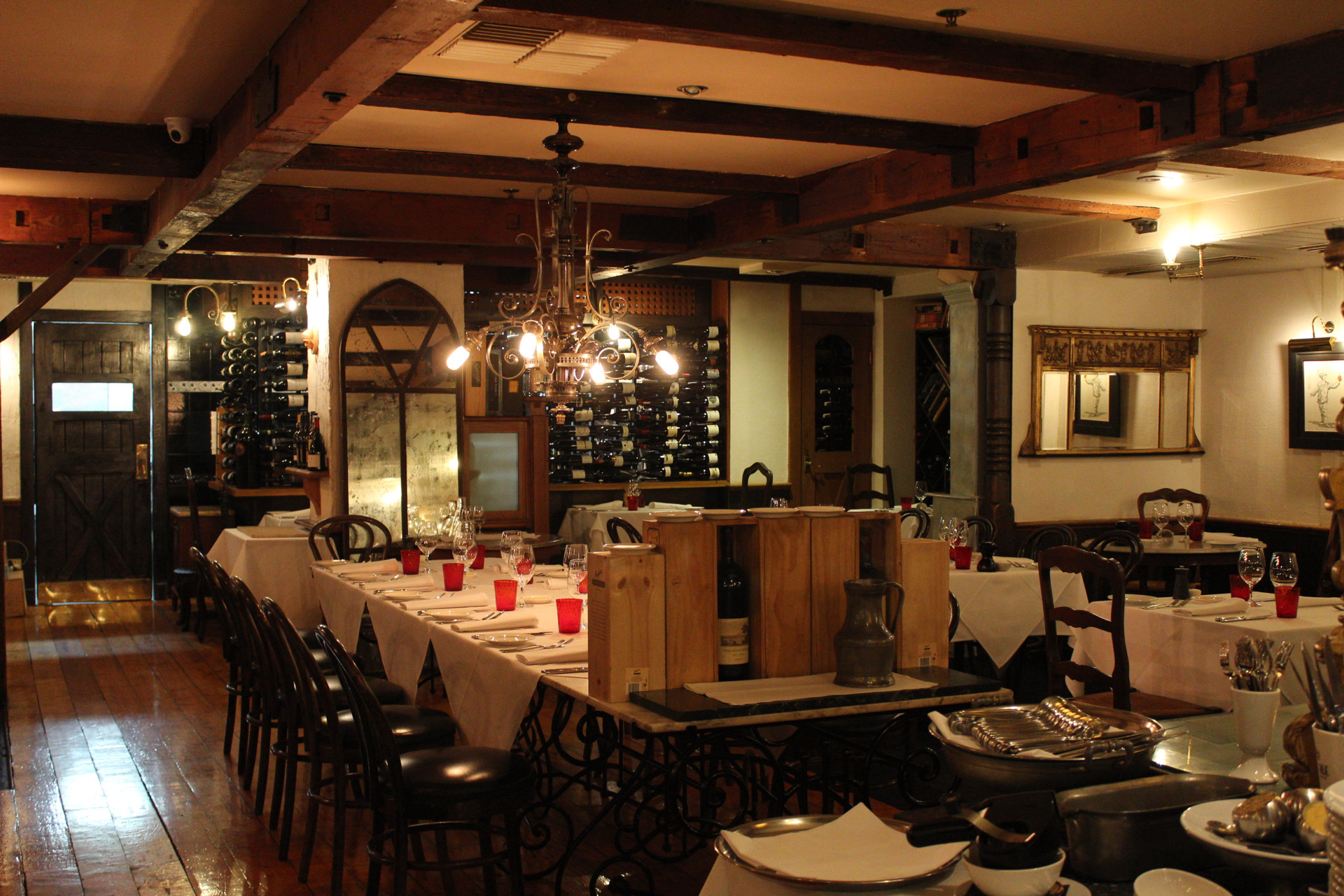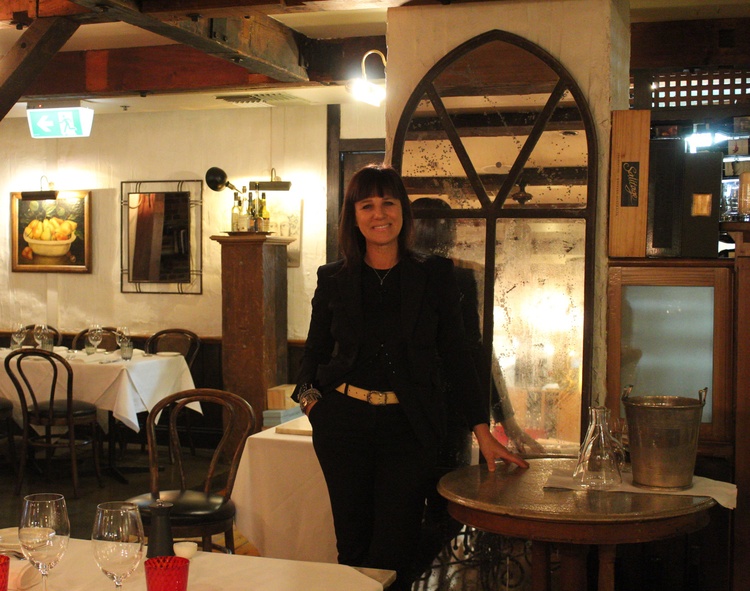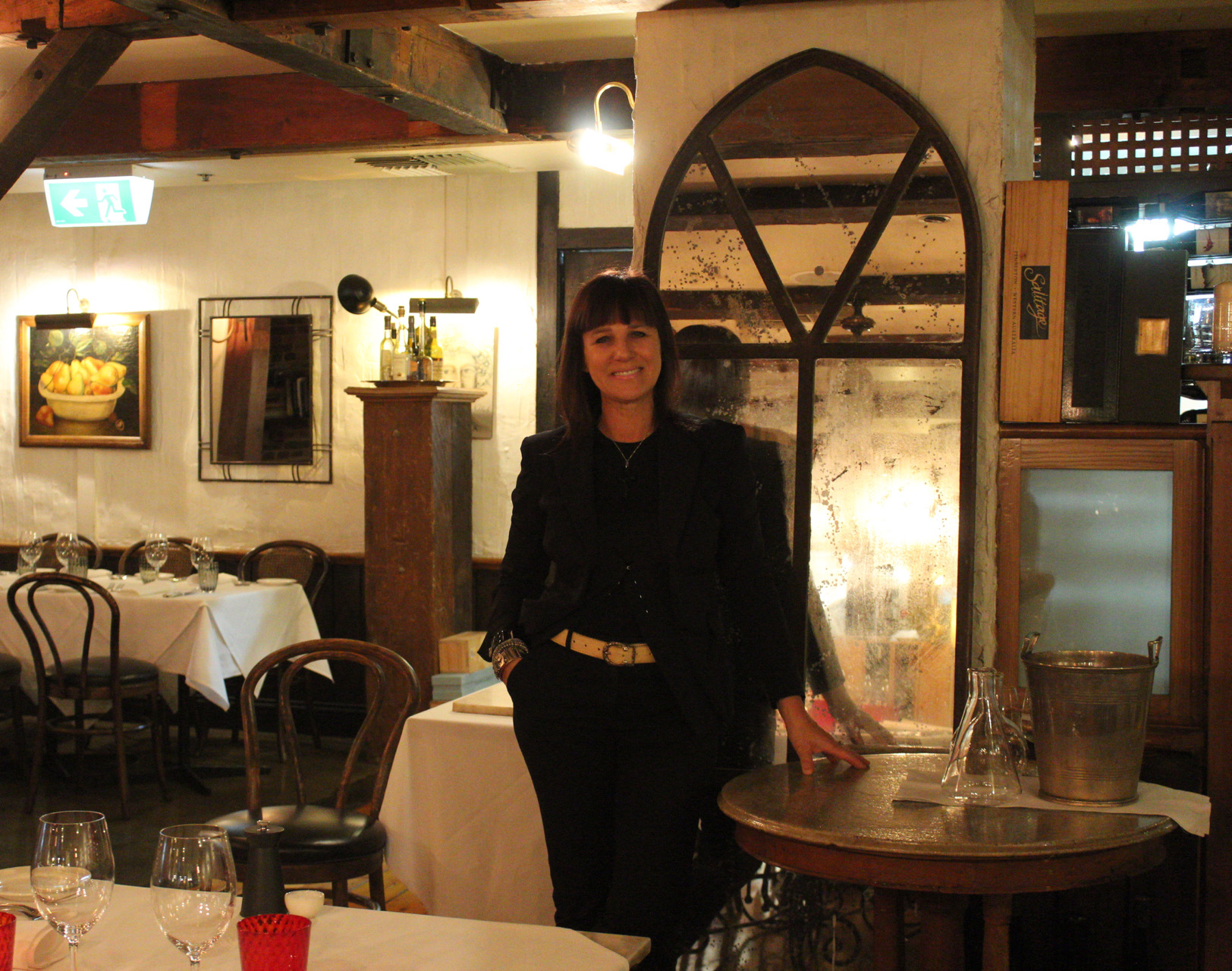Born in a basement on Queen Street, Caterina’s Cucina e Bar represents an exquisite fusion of classicism and modernity, and a return to the magnificent past of a country that never ages.
I looked around in awe, almost as though I were a tourist, soaking up the scene of the large restaurant adorned with paintings, mirrors, cherubs, Venetian masks and marble tables.
Caterina Borsato’s strong loyalty to refined Italian cuisine and her passion for hospitality have seen her restaurant become an institution on the Melbourne food scene.
The renowned restaurant serves up dozens of traditional specialties and edible masterpieces each day, thanks to its trusty chef Marcello Mariani.
Together with the restaurant’s manager, Tania Petroro, who has been there since the beginning, Borsato has managed to give ample space to women, almost all Italian, who have dominated her restaurant for 25 years now, breathing life into her food dream before cooking became a television trend and chefs stole the spotlight.
In 1995, Borsato decided to draw on the dynamics that informed her childhood and adolescence: sophisticated food, good wine and indisputable passion.
Her upbringing on an extraordinary farm in Gippsland was a typically Italian one, with a father from Vicenza and a mother from Treviso, who arrived in Australia in 1949 with a suitcase full of dreams and aspirations.
“My father worked in a prestigious Australian restaurant for 10 years,” she says.
“He was a very determined young man who was ready to assimilate to the new society that surrounded him.
“He saved for years and eventually bought his farm.
“His life was on the land, but his job in the restaurant allowed him to broaden his knowledge of food.
“I believe my profession was hidden in my DNA, starting from my grandmother from whom I inherited the traditional flavours and aromas of Italian cuisine.
“She passed away when she was 92; she was an incredible woman and I always say she was my ‘Italian mum’.
“And then, there are my parents – my father and his determination, my mother and her strength.
“Their farm was a sanctuary of unspeakable value, on which we had the opportunity to observe duck hunting and taste guinea fowl.”
Armed with the strong family values that had been passed down to her, Borsato moved to Melbourne to attend university, where she studied history, French and German.
“I fought a lot to also study Italian and I won in the end; in my second year, they allowed me to do so.”
It was during those days of solitude, far from her family, that Borsato understood just how much Lygon Street – the heart of Italian culture in Victoria – was an integral part of the community.
But she also discovered that not all the restaurants on the street were authentically Italian.
“There was more cream in the carbonara than on my father’s farm,” Borsato laughs.
“People were buying generic brands and there was no high quality dry pasta.
“I remember the owners of Enoteca and the Lygon Food Store were among the few who sought to be truly authentic.
“In those days, I thought if I ever got into the business, I would manage my restaurant differently.
“I already knew what the right thing to do was, because we were feeding Australia, we were enriching it with new traditions.
“And at a time when people rarely travelled to Europe, our role was essential.”
A scholarship obtained at the University for Foreigners of Perugia paved the path to Borsato’s career in the restaurant business.
During that educational trip to Italy, Borsato was finally able to return to her roots.
“I was 20 years old, I had no mobile phone and I was alone in Italy,” she recounts.
“Ironically, at that time I met the former Premier of South Australia, Don Dunstan, who was studying at the same university and I finally understood how important Italy was; people travelled from far and wide just to study its language and culture.
“Those three months in Italy pushed me profoundly to become what I am today.”
Borsato’s first job, with the Carlton Football Club, was the next important step in her journey to success.
Her experience in that position launched her into the world of business.
She was appreciated and respected, but her dream was still a long way off.
She was still a young woman, with very little money, but with a whole lot of skills and experience.
She dealt with banks and considered possible loans but the network of contacts structured over her years of experience in football was the solution she’d been waiting for all her life: a group of entrepreneurs decided to finance the lease agreement for the new restaurant Caterina’s Cucina e Bar, in the heart of Melbourne.

Caterina’s Cucina e Bar. (Photo: Benedetta Ferrara)
“It wasn’t easy,” Borsato says of her endeavour.
“When I opened the doors of my new business, people told me outright that I’d fail.
“They said straight to my face: ‘You’ll fail here’.
“And I thought: ‘Would they say that if I were a man?’
“I don’t think so, but I’m sure I’ve proved them all wrong.
“I will be eternally grateful to those extraordinary men who instead believed and trusted in me, giving me a loan that I’m still paying off today.
“Somehow, they understood my vision.”
Now considered a queen in Melbourne’s culinary sphere, Borsato is a published author, has hosted Italian cooking shows and is a refined collector of antiques that can be admired within the brick walls and the wooden beams of her restaurant.
After 25 years of success, Borsato says she’d do it all over again and wouldn’t change a thing.
“I thank my father, who is gone now, but who knew how to instil the right drive in me, and my mother who, along with my husband and daughter, has always been my biggest supporter,” she says.
In recent months, despite the global health crisis that has caught us all off guard, the entrepreneur has continued to keep her restaurant open, offering takeaway and home deliveries with two specific menu options for remote ordering: “Ready to eat” and “Tutti a casa”.
Now she faces a new challenge, along with other restaurateurs in the state: having to host only 20 diners at a time, while adhering to the government’s social distancing rules and ensuring there’s enough space between tables and people.
“I consider myself lucky because my venue is quite spacious and I’ll be able to continue working without any difficulty,” Borsato says.
“I really miss the social interaction and contact with customers that are so integral to our job.”
Borsato concludes by highlighting that the beating heart of a restaurant is its team.
“I think of my team, my colleague Elena, for example, who’s originally from Venice and who I sponsored years ago before the federal government changed the immigration laws,” she says.
“It was unsettling to read about all of those people on temporary visas who’ve been forced to return home, because the government didn’t take care of them.
“It makes me very angry.
“They’re people who study, who pay taxes and now they’re cut off from our economy.
“I’m Italian and I understand how much we need them in our community, especially in the hospitality sector.
“All the Italians I’ve employed in my restaurant have always been amazing and they’ve added new dimensions to my business.
“I hope the government listens and realises how much we need these valuable workers.”












